Local SEO Citation Myths
Citations are important for Local SEO
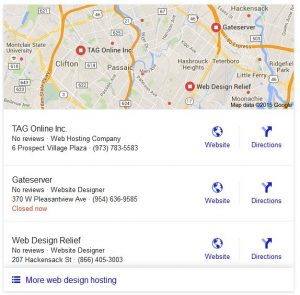
There are several tools available to help build citations across the web for Local SEO. We support the Yext platform, but it’s not the only good one. You can even manage them manually if you have the time and inclination. But it’s important to understand what citations are and why they’re important for local search, and not be mislead by common myths about them.
Your visibility in Local Search depends on three factors:
- Classic SEO: high quality on-page content well optimized for your target keyword phrases
- Prominence: citations listing your NAP (name, address, phone) consistently and widely across the web
- Proximity: how close your location is to the person doing a local search
Clearly, you have no control over the location of a searcher, but the other two factors are things we deal with all the time. For local businesses, classic SEO can get us a good bit of the way there. But ensuring a proper citation profile is essential as well.
Since we focus on small and very small businesses here at Rank Magic, the preponderance of our clients are local businesses. As a result, we support building and maintaining citations for many of them. If you own a local business, it’s important to understand what citations are and what they aren’t.
And sadly, there are widespread myths about what they are and how they work. Joy Hawkins at Moz has recently written about them, and you can dig into her article for more information. The following is a quickly digestible overview with some of our own observations.
Some common misunderstandings about citations.
1) Your suite number has to be everywhere.
Inevitably, some of your citations will include your suite number and others won’t. There is no need to worry; Google doesn’t pay very much attention to that.
If you run a scan of your most important citations from the tool on our site, you may notice that if you enter a suite number in the scan, addresses without the suite number are not flagged as inconsistent or erroneous.
2) Minor differences in your name are critical.
You may be listed in some places as “Main Street Medical”, in others as “Dr. Stacey Morrow, Main Street Medical”, and in others as “Main Street Medical: Dr. Philip Cleaver”, etc. Never fear: Google is smart enough to understand that all of these represent the same practice. Where it becomes important though is if there is no overlap. Google may not understand that listings for “Dr. Stacey Morrow” and “Dr. Philip Cleaver” represent the same practice. In that case, it would be important to correct them.
3) You need to clean up your citations on hundreds of sites.
It’s good to clean up your citations on important and independent sites. But many sites are related. In its heyday, The Open Directory was replicated on more than 300 separate domains and subdomains. Fixing it in one place affected all of the others. That still happens today with many websites including results from Local.com. If your citation on Local.com is correct, it will very soon trickle down to all of those other sites that repeat its listings.
It’s still helpful in local search for your citations to be spread widely across the web. The more places Google find a consistent NAP for your local business, the more confidence it has. Remember, if Google is confused about exactly where your business is or what your phone number is, it’s less likely to rank you as prominently.
4) There’s no local search risk in canceling a citation service.
Well … That may be a little complicated. A study of canceling the Moz Local service showed little or no change after cancellation. Yext is a little bit different. [Fair notice: we are a Yext Certified Partner.]

The folks at WhiteSpark did a study and concluded that the Yext seems to place a “cover” on top of the previous missing or incorrect listing and when that cover is removed many citation sources revert to the previous content — or lack thereof. In our experience, we find that three or four months after canceling a Yext subscription about half of citations that were missing or incorrect before are missing or incorrect again. So while hanging onto your Yext subscription is a good idea, if you decide to cancel it you should plan to do a little manual cleanup after cancellation to preserve your local search visibility.
5) Citation building is the only link building you need for Local SEO success.
Remember the first of the three local ranking factors I cited at the top? You need natural, related links as part of classic SEO to help establish both relevance and authority, apart from just cementing your NAP. All of these factors work in concert, and working heavily on one of them doesn’t mean you can ignore the others.
6) Don’t worry if an unrelated business used to have your current phone number.
Google is pretty smart about recognizing that you’re not the same as the business that had your phone number in the past. However, it seems there may be a risk to this if customers continue to call your phone number trying to reach the previous business that had that number once before. That usually only happens if your phone number was active at that previous business recently. When Google discovers that, it may conclude that it provides a poor customer experience and that may affect your rankings.
As soon as you become aware that a different business once had your phone number, it would be a good idea to check and see if they are still listed out there with that phone number. (Our scan linked to above under myth #1 is an easy way to check this.) If they’re still listed on a number of sites , it would be good to correct that on those citation sources so they don’t impact negatively on your own business.
7) Your Google My Business listing is a citation.
Actually, your Google My Business listing is part of the core search engine, like Bing and Apple. It’s more important than a run-of-the-mill citation, but all of those citations across the web tend to support your NAP on Google my business.

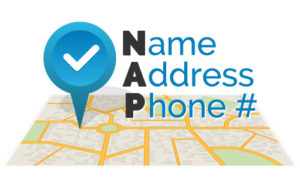
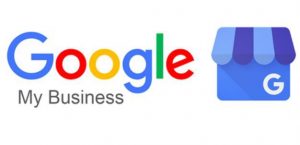
 Schema is a common short term for structured data, named after Schema.org, the website for structured data markup. It was created by a collaborative team from
Schema is a common short term for structured data, named after Schema.org, the website for structured data markup. It was created by a collaborative team from  We always recommend that our SEO clients include schema structured data markup as an important SEO technique. That’s because giving the search engines structured data helps them understand your webpages better and results in a ranking increase for you. It’s especially critical for
We always recommend that our SEO clients include schema structured data markup as an important SEO technique. That’s because giving the search engines structured data helps them understand your webpages better and results in a ranking increase for you. It’s especially critical for 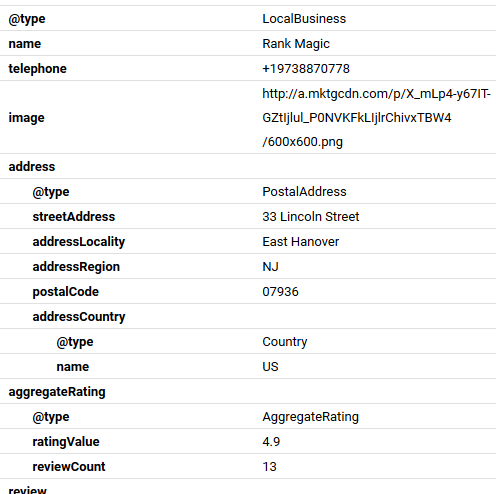
 There is a stupefyingly simple way to implement this stuff on your website. It’s a lifesaver if you’re doing your own coding, but even if your webmaster does it for you, this solution can save significant time, effort, and money.
There is a stupefyingly simple way to implement this stuff on your website. It’s a lifesaver if you’re doing your own coding, but even if your webmaster does it for you, this solution can save significant time, effort, and money. Yext Knowledge Tags is an enhancement to their Knowledge Graph PowerListings which provides a simple short snippet of code to add to your web pages that will implement full schema coding throughout. If anything changes in your Knowledge Graph, it’s automatically reflected in the schema code on your website. Immediately.
Yext Knowledge Tags is an enhancement to their Knowledge Graph PowerListings which provides a simple short snippet of code to add to your web pages that will implement full schema coding throughout. If anything changes in your Knowledge Graph, it’s automatically reflected in the schema code on your website. Immediately. What is Local Search?
What is Local Search?

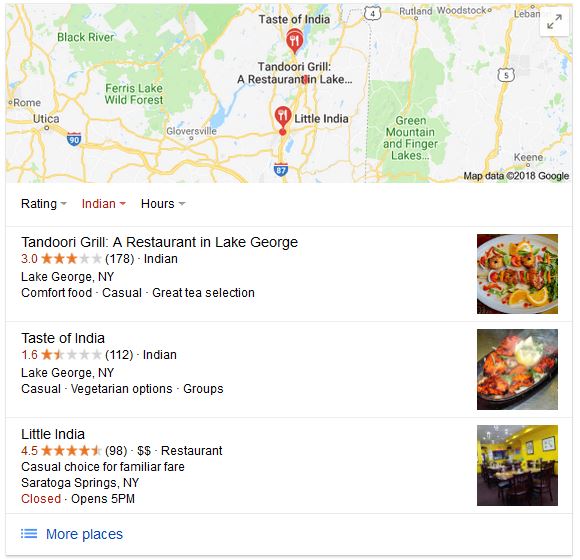
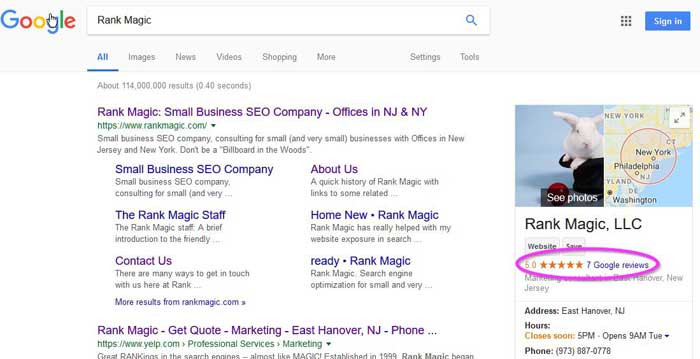

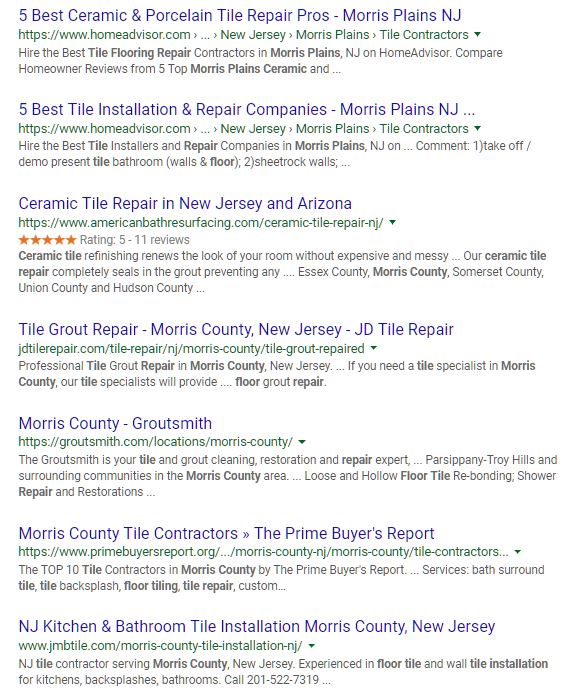
 How to get first party reviews
How to get first party reviews

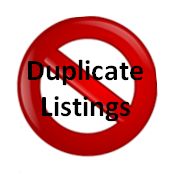 Inconsistent NAP
Inconsistent NAP
 Awareness
Awareness Suppression
Suppression